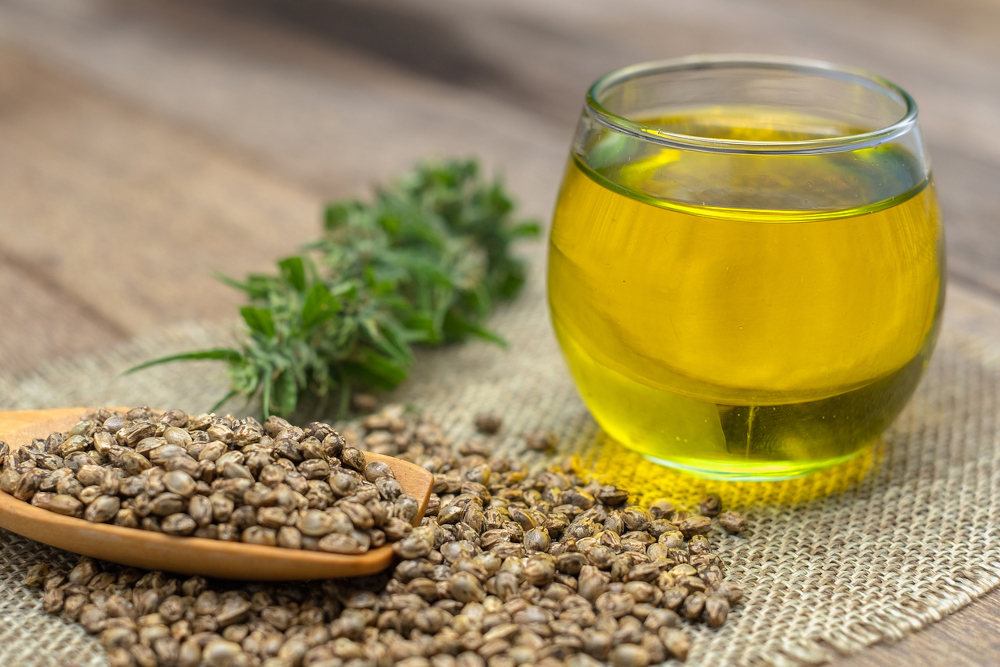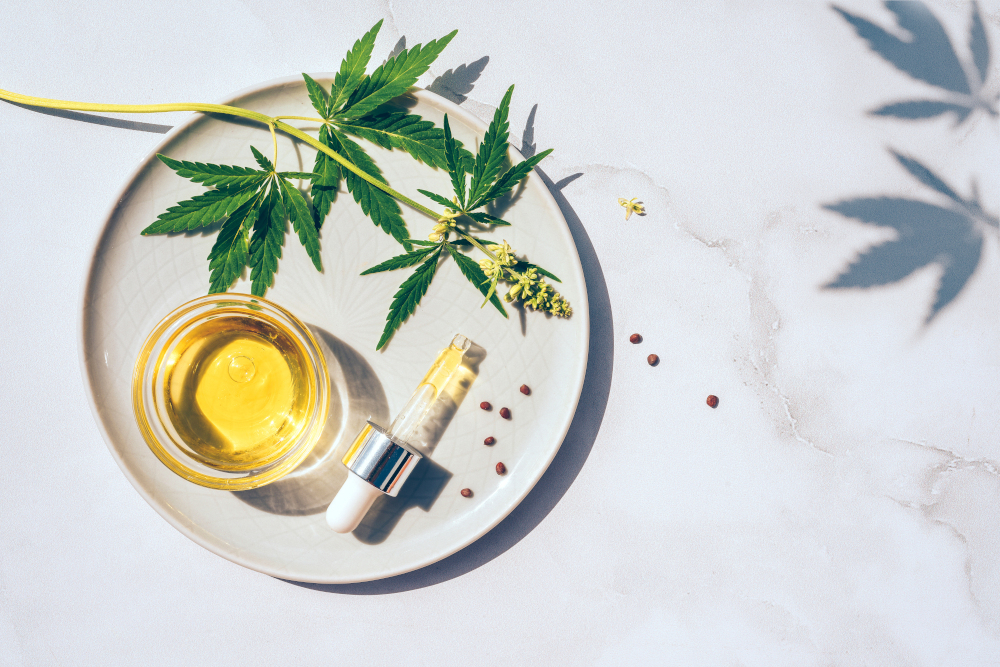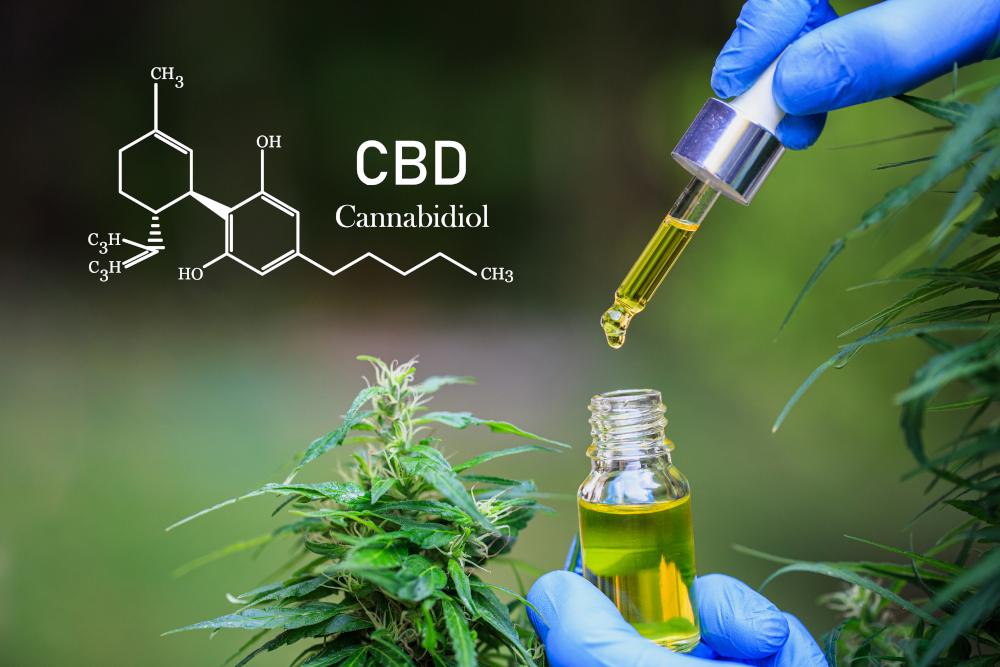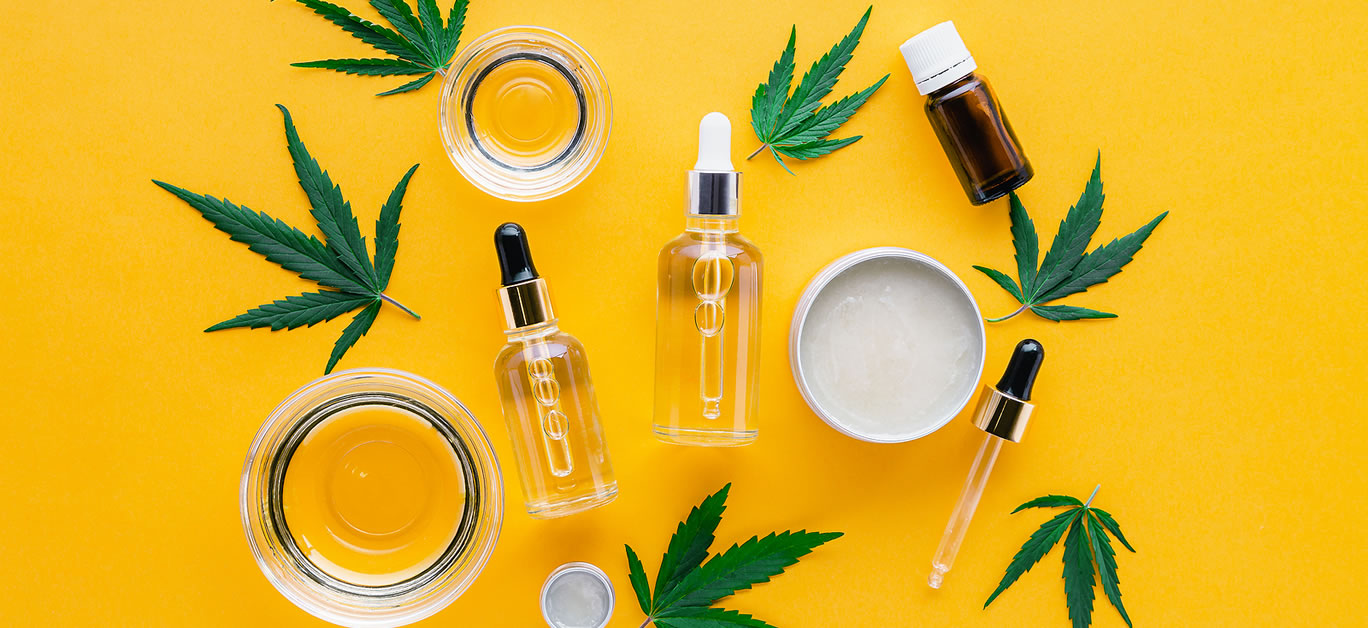CBD has become something of a buzz term over recent years, with a growing number of people turning to this Cannabis Sativa L-derived ingredient to help manage a variety of different health conditions – particularly those involving chronic pain and inflammation, as well as depression and anxiety. But while cannabidiol certainly appears to be a powerful natural tonic, it isn’t the only intriguing and non-psychoactive compound the plant has to offer, and alternative cannabinoid cannabigerol – or CBG – is the latest to cause a stir in health and wellness circles.
Both compounds can be naturally found within the body, and offer similar benefits when it comes to helping manage the symptoms of various different conditions. But CBG – which is now being referred to by many as ‘the mother of all cannabinoids’, is thought to pack an even more powerful punch.
What is CBD?

In the great CBG vs CBD debate, it’s important to consider the benefits of each and how they compare.
CBD is one of the most popular and common types of cannabinoids, and has thus been more thoroughly researched. CBG, meanwhile, is a relative newcomer to the health and wellness space and tends to be a rarer cannabinoid, so there’s still a lot to learn about its properties.
CBD boasts a wide range of medical benefits, including its ability to help with chronic pain, and in cream formula, can help with skin conditions like eczema and psoriasis. There’s even evidence that it can help with neurological disorders, such as Parkinson’s disease and Alzheimer’s, as well as autoimmune diseases, like schizophrenia, epilepsy and multiple sclerosis – although more research needs to be done before we’ll be able to fully understand its efficacy.
CBD is also known for its assistance in helping to manage the symptoms of some mental health issues, and thanks to its therapeutic qualities, is said to be able to help with a range of different anxiety disorders as well as sleep problems and insomnia. Available to purchase in a variety of different forms – from oils and creams to edibles and other infused food and drink products – it can be either ingested or used topically, depending on each individual set of needs.
What is CBG?

CBG, meanwhile, has a different genetic make-up to CBD and as we mentioned, is known to be a much rarer cannabinoid. Although it does have similar therapeutic properties to CBD, it can also be useful against antibacterial, antiparasitic and antifungal issues, and currently, researchers are looking into whether or not it has anti-cancer properties that can help to slow down the growth and expansion of cancer cells.
Currently, CBG is thought to be most effective when used to ease symptoms of problems like migraines and muscle sensitivity, although CBG skincare products are also known to be beneficial for helping to maintain healthy skin. CBG is generally somewhat stronger than CBD, so it’s important to use it in smaller doses – take care to read the instructions and dosage information on your product carefully before you begin.
Which Cannabinoid is better for you?

So, which of these two cannabinoids are the better option? The answer depends entirely on the type of issues you’re hoping to address.
Both CBG and CBD offer a raft of benefits but can also come with some mild side effects, such as dry mouth, increased heart rate and decreased blood pressure, so be aware of this before you begin use and avoid mixing the two products together to eliminate any chance of overdosing. And of course, be sure to seek a medical professional’s advice before starting treatment to ensure that it’s safe for you to do so, taking into consideration any current health conditions and medications you might be taking.






















